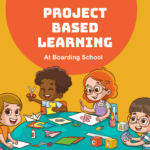As a student in schools in Dehradun, preparing for school exams can be a daunting task. With the pressure to perform well and the desire to achieve academic success, it’s essential to develop effective study tips and techniques to help you excel. In this article, we will share valuable insights and practical advice on how to prepare for school exams, focusing on study tips and techniques that can help you succeed.
Understanding Your Learning Style

Before we dive into study tips and techniques, it’s crucial to understand your learning style. Are you a visual, auditory, or kinesthetic learner? Knowing your learning style will help you tailor your study approach to suit your needs. Visual learners benefit from diagrams, charts, and videos, while auditory learners prefer listening to lectures and podcasts. Kinesthetic learners, on the other hand, learn best through hands-on activities and experiments.
To identify your learning style, reflect on how you best absorb information. Do you remember details better when you see them written out or when you hear them explained? Do you find it easier to understand concepts through practical applications? Recognizing your learning style is the first step toward optimizing your study sessions.
Setting Goals and Creating a Study Plan
Setting realistic goals and creating a study plan are essential steps in preparing for school exams. Break down your goals into smaller, manageable chunks, and prioritize your study material. Create a study schedule that allows you to manage your time effectively, ensuring you cover all the necessary topics. Use a planner, calendar, or app to stay organized and on track.
Steps to Create an Effective Study Plan
- Assess the Syllabus: Understand the entire syllabus and break it down into sections.
- Set Realistic Goals: Set daily and weekly goals that are achievable.
- Allocate Time Wisely: Divide your study time into blocks for each subject or topic.
- Revise Regularly: Ensure regular revisions to reinforce what you’ve learned.
A structured study plan helps prevent last-minute cramming and reduces exam stress. By following a schedule, you can cover all the topics thoroughly and be well-prepared for your exams.
Active Learning Techniques
Active learning techniques are powerful tools to enhance your understanding and retention of study material. These methods engage different parts of your brain, making it easier to recall information during exams. Some effective techniques include:
- Summarizing Notes in Your Own Words: This helps you process and understand the material better.
- Creating Concept Maps and Flashcards: Visual aids can simplify complex topics and improve memory.
- Making Self-Testing a Habit: Regular self-tests help identify areas that need more attention.
- Engaging in Group Discussions and Debates: Explaining concepts to peers can reinforce your understanding.
- Practicing Active Recall and Retrieval: Regularly quiz yourself on the material to strengthen memory retention.
Effective Time Management
Time management is critical when preparing for school exams. The Pomodoro Technique, which involves studying in focused 25-minute increments followed by a five-minute break, can help you stay focused and avoid burnout. Additionally, learn to prioritize your tasks, avoid multitasking, and minimize distractions. Use technology to your advantage, utilizing apps and tools that help you stay organized and focused.
Tips for Effective Time Management
- Prioritize Tasks: Tackle the most important and challenging tasks first.
- Avoid Procrastination: Break your study sessions into smaller chunks to make it easier to start.
- Set Deadlines: Create a sense of urgency by setting deadlines for each task.
- Use a Timer: Allocate specific time slots for each subject and stick to them.
By managing your time effectively, you can ensure that you cover all necessary material without feeling overwhelmed.
Staying Organized and Focused
Staying organized and focused is vital when preparing for school exams. Use a designated study space, free from distractions, and keep all your study materials organized. Avoid procrastination by breaking down your study material into smaller, manageable chunks.
Strategies for Staying Organized and Focused
- Choose a Quiet Place: Select a quiet and comfortable place to study.
- Organize Your Study Space: Keep your study area clean and have all your materials within reach.
- Eliminate Distractions: Turn off notifications on your phone and avoid social media during study sessions.
- Comfortable Seating: Ensure that your seating arrangement is comfortable to avoid discomfort and improve concentration.
Seeking Help and Support
Don’t hesitate to seek help and support when needed. Reach out to your teachers, classmates, or tutors for guidance and clarification. Join study groups or online forums to connect with peers and stay motivated.
Ways to Seek Help
- Ask Teachers: Don’t be afraid to ask questions or seek clarification on challenging topics.
- Join Study Groups: Group study sessions can provide different perspectives and aid understanding.
- Use Online Resources: Educational websites, videos, and forums can offer additional explanations and practice materials.
- Consider Tutoring: Personalized guidance from a tutor can help overcome specific challenges.
Conclusion










